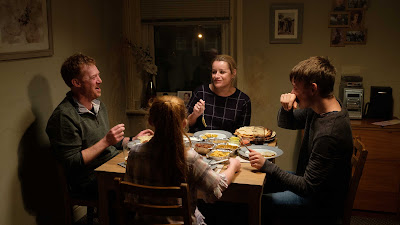The Kung Fu master travels to the U.S. where his student has upset the local martial arts community by opening a Wing Chun school.
December 31st is here, and a fitting review for the final day of the year is Ip Man 4: The Finale. Wilson Yip returns once again to direct this fourth and final film in the official Ip Man saga. For those not aware, the franchise is biographical, based on the life of Ip Man (yes, that is his name), a Chinese martial artist of Cantonese ancestry and a master of the martial art, Wing Chun. His most famous student was Bruce Lee. Ip Man 4: The Finale covers a final chapter of Ip Man's life prior to his death. This a martial arts film, which makes the two most important elements of the film; the story, and the action a.k.a. the fight choreography. Ip Man does much better in one than the other.
The fight choreography is very well executed. Yuen Woo-ping returns in his role as the choreographer and fight advisor, having worked previously on Ip Man 3, as well as such titles as Crouching Tiger, Hidden Dragon, The Matrix franchise, and Quentin Tarantino's Kill Bill Vol 1 & 2. Incredibly fast-paced, with smooth execution. The difference in physicality between the various martial arts styles is very apparent, and well separated. The speed does require some speeding up in post-production and there are a few actions that do not translate too well, making it very obvious that it has been edited to look faster. Nothing too over-the-top to take away from the energy of the scenes, but still noticeable.
The story is very grounded and quite toned back compared to previous Ip Man films. In an unexpected turn, Ip Man's story arc is almost relegated to a minor plot thread, due to the number os supporting characters and the amount of significance placed on the other storylines. It's almost as if there wasn't enough content remaining for a fourth film, but the film was pushed through production anyway, filling the story with as much other material as possible.
What is a huge element of the film, is the theme of racial persecution and discrimination, and it far overpowers Ip Man's arc of trying to get his son into a school. There is a seriously turned-up racial tone to the film that paints every white character as a hateful white supremacist-level of bigot. Derogatory racial slurs are thrown around with absolute disregard and--whether that was the tone of the period or not--it leaves the audience feeling either uncomfortable at the language or laughing uncontrollably at the overly dramatic and over-the-top dialogue choices. This such a stereotypical good vs evil scenario that you'd be forgiven for thinking every single white American character had a curly moustache and maniacal laugh.
You can't help but think the film was created as yet another example of Chinese propaganda, trying to change the impressions of the western audience around the Chinese government. Ip Man has a minimal active role in his final film, coming across as more of a passive participant than an active leader. It has taken his more restrained personality traits to the extreme, giving him very little to do.
Overall though, the Ip Man 4: The Finale is a more than adequate addition to the franchise. With great set designs, costumes, and the contrasting environments and locations between China and the US, the film looks great and still has Ip Man fighting against oppression.




















































